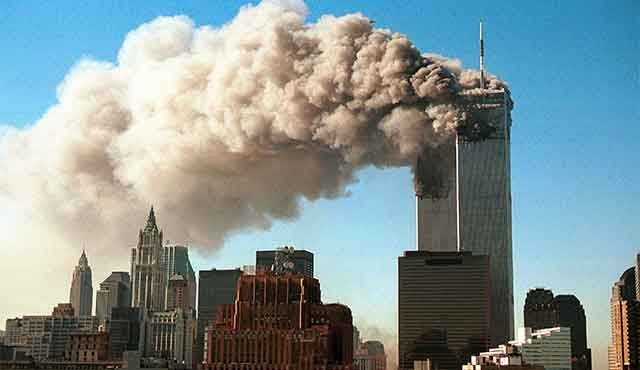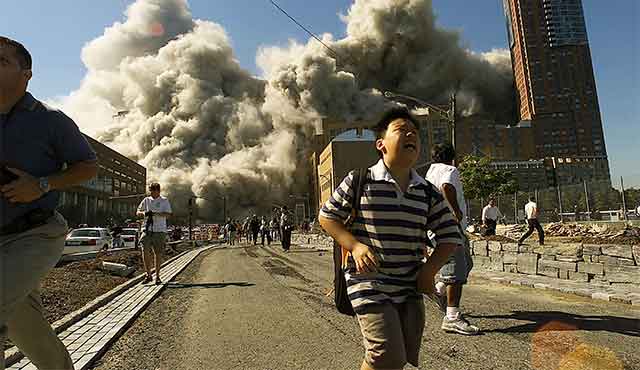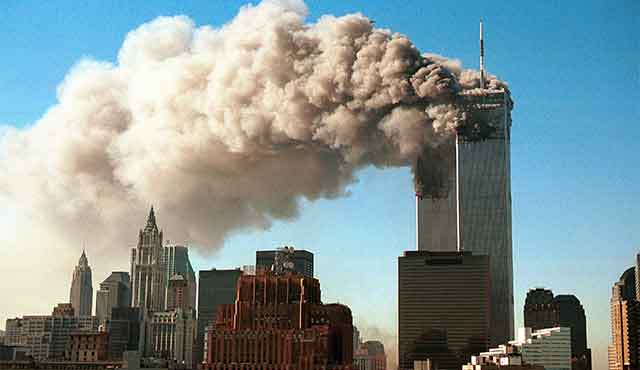“To everything there is a season, and a time to every purpose under heaven…
A time to kill…”
As long as humans have existed, so has war. It is brutal, ugly, horrifying and cruel, and its principal aim is destruction—to take the fight to the enemy with such thorough and remorseless power and resolve that the other side surrenders or is utterly erased from existence. It has been a curse on humankind since our primitive ancestors attacked each other with stones and sticks.

So can war possibly be justified? Jesus, Saint Augustine and the Catholic Church say yes. But a very qualified yes.
In its essence, a just war is one that is waged in defense, or to counteract the evil that an aggressor nation or entity brings to a conflict of arms. A war of aggression or imperialism, designed to subdue and subsume another nation, its people and its resources, can never be considered just, nor can a war waged for the sake of vengeance or hatred.
With that as a kind of foundational principal, Saint Augustine, in the fourth and fifth centuries, set down a short list of criteria for waging just war that have been refined over the better part of 2,000 years, but that at their core have remained essentially unchanged and that are now known within the Catholic Church as the Just War Doctrine.
At the deepest roots of the doctrine is the assertion that Christians must shun violence and promote peace—but must not shrink from the use of arms when it is called for. Even Jesus acknowledged the legitimate use of force when he told the apostles, “Let him who has no sword sell his mantle and buy one” (Luke 22:36).
For the exercise of force to be considered legitimate, all of the following conditions must be met, according to the “Catechism of the Catholic Church” (2309):
- The damage inflicted by the aggressor on the nation or community of nations must be lasting, grave and certain.
- All other means of putting an end to it must have been shown to be impractical or ineffective.
- There must be serious prospects of success.
- The use of arms must not produce evils and disorders graver than the evil to be eliminated. The power of modern means of destruction weighs very heavily in evaluating this condition.
The Catechism points out that “rigorous consideration” must be given to any decision to go to war and that such evaluation “belongs to the prudential judgment of those who have responsibility for the common good.” It also says that it is not enough for just one of the conditions to be met; all must be met “at one and the same time.”
If all moral conditions for going to war have been satisfied, it is then necessary to turn attention to the moral issues involved in the conduct of the war. “Non-combatants, wounded soldiers and prisoners must be respected and treated humanely,” asserts the Catechism. It also declares that “blind obedience” is no excuse for immoral and criminal acts in wartime, such as genocide.
Where does this leave the United States in today’s world? How does the Just War Doctrine figure into America’s global fight against terrorism?
The U.S. Catholic Bishops are adamant that America “has a moral right and grave obligation to defend the common good against mass terrorism.” They have also said, however, that “those who subscribe to the just-war tradition can differ in their prudential judgments about its interpretation or its application.”
The Catholic sociologist and writer George Weigel argues that the doctrine is not “an algebra that provides custom-made, clear-cut answers under all circumstances. Rather, it is a kind of ethical calculus, in which moral reasoning and rigorous empirical analysis are meant to work together in order to provide guidance to public authorities on whom the responsibilities of decision-making fall.”
Weigel does agree with the bishops that the fight against terrorism qualifies as just, in the same way that World War II did.
Of the Sept. 11 attacks he says, “The perpetrators of these acts of mass murder understood themselves to be involved in a war—against the United States and, more broadly, the West. Had that fourth plane destroyed the White House or the U.S. Capitol, it would have been unmistakably clear that these attacks were aimed at the destruction of the United States government—just as the previous attacks on the Khobar Barracks in Saudi Arabia, the U.S.S. Cole, and the U.S. embassies in East Africa were attacks on the United States, every bit as much as the attack on Pearl Harbor.
“That the adversary is not an army in the conventional sense does not change the reality of the situation. Guerrilla warfare involves…a foe that deliberately blends in with the civilian population, no army-to-army fight, a long struggle, etc.; no one suggests that guerrilla warfare is anything other than warfare.”
The fact that war has broken out does not mean that “all’s fair.” The Church has been particularly clear on the use of weapons of mass destruction.
“Every act of war directed to the indiscriminate destruction of whole cities or vast areas with their inhabitants is a crime against God and man, which merits firm and unequivocal condemnation,” declares the Catechism, reaffirming the teachings of Vatican II in the apostolic constitutional document “Gaudium et Spes.”
That same document—the title of which means “Joy and Hope”—sounded a sobering note of realism that serves as a reminder of the crucial necessity of the Just War Doctrine: “Insofar as men are sinful, the threat of war hangs over them, and hang over them it will until the return of Christ.”


